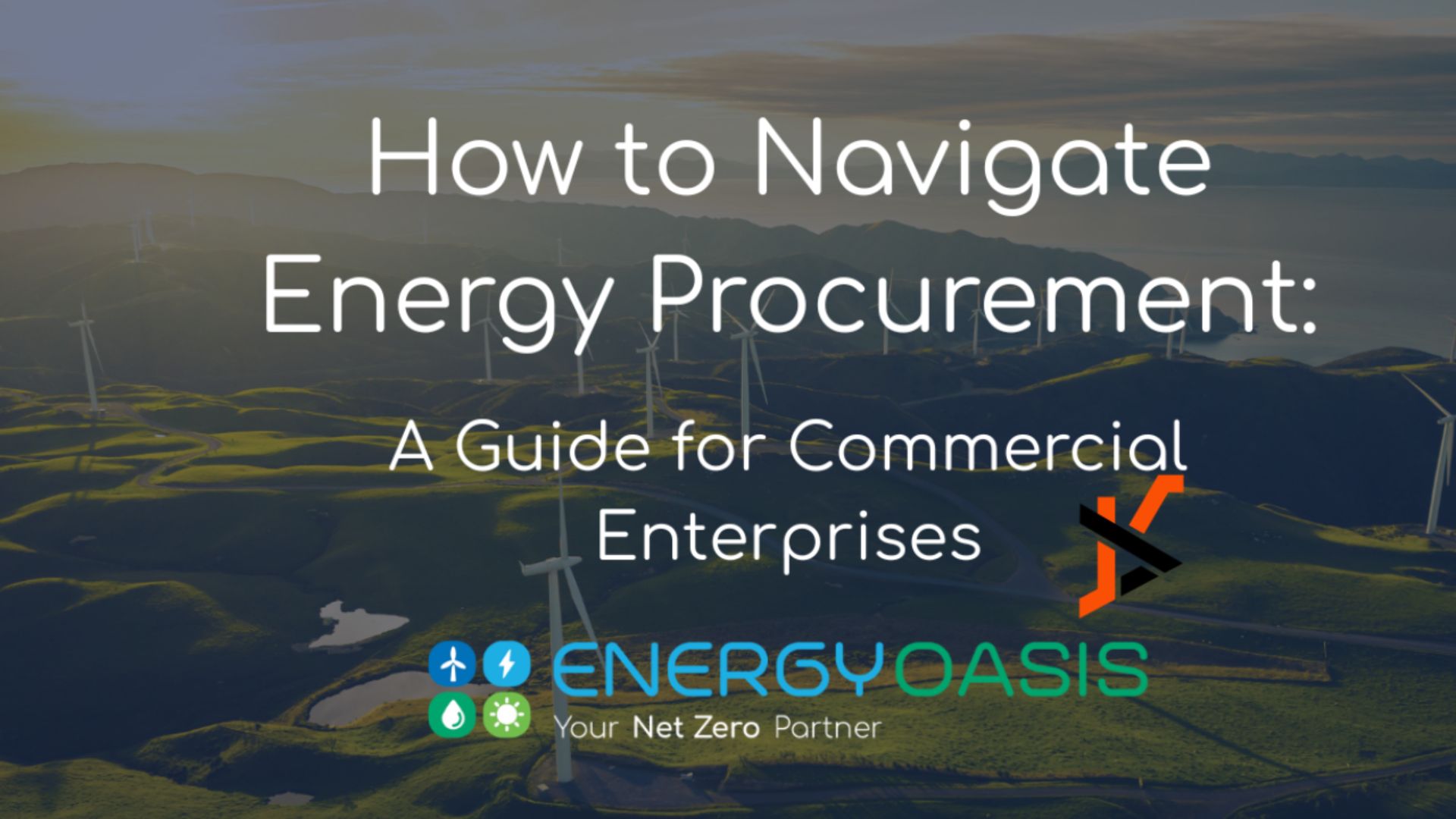In today’s dynamic energy landscape, businesses must make informed decisions to manage their energy consumption effectively. Understanding commercial energy procurement is key to maintaining cost efficiency, reliability, and sustainability in operations. This guide explores what commercial energy procurement entails, why it matters, and how companies can develop strategies for long-term success.
Why Is Commercial Energy Procurement So Important?
Commercial energy procurement refers to the process through which businesses source their energy from suppliers. It plays a vital role in controlling expenses, managing exposure to market volatility, and supporting sustainability objectives. Whether it’s a manufacturing plant, retail chain, or office-based company, having a clear procurement strategy can make a significant difference in performance and profitability.
How Does Energy Procurement Support Cost Management?
One of the core benefits of commercial energy procurement is cost control. By understanding the market and securing energy at the right price, businesses can effectively reduce their operational expenditures.
- Budget predictability: Negotiating favourable contracts helps companies lock in prices, protecting them from market spikes.
- Improved forecasting: Consistent energy rates enable more accurate budgeting and financial planning.
- Operational efficiency: Proactive procurement ensures energy is purchased when prices are advantageous, creating savings over time.
What Role Does Risk Mitigation Play in Energy Procurement?
The global energy market is unpredictable — prices can fluctuate due to geopolitical tensions, demand shifts, or environmental factors. Smart energy procurement strategies help businesses manage these risks.
- Long-term contracts: Securing energy through fixed agreements stabilises costs and guards against price volatility.
- Blend-and-extend deals: These allow companies to modify existing contracts for better terms when the market shifts.
- Diverse sourcing: Engaging multiple suppliers reduces dependency on any single energy provider.
What Are the Main Strategies for Effective Energy Procurement?
Different procurement strategies suit different business models. Choosing the right one depends on a company’s size, budget priorities, and risk tolerance.
1. Fixed-Price Contracts
This is the most predictable option. Businesses agree to a set energy rate for a defined term, shielding them from sudden market increases. It’s ideal for organisations focused on financial stability and straightforward budgeting.
2. Flexible Purchasing
This method allows companies to buy energy in smaller portions at different times throughout the contract. By taking advantage of price dips, they can potentially lower costs. However, this approach requires careful monitoring and market expertise.
3. Energy Procurement Consulting
Partnering with professional energy consultants can strengthen procurement strategies. Consultants provide expert market analysis, negotiation support, and risk management advice. This option is especially useful for companies without dedicated in-house energy specialists.
How Can Businesses Make Their Energy Procurement More Sustainable?
Sustainability is becoming a key focus in energy procurement. Many businesses now prioritise clean and renewable energy options to align with environmental goals and comply with regulatory standards.
Renewable Energy Certificates (RECs)
Purchasing RECs allows businesses to match their energy consumption with renewable energy production. This supports the renewable energy sector and demonstrates a company’s commitment to environmental responsibility.
On-Site Renewable Generation
Installing on-site systems like solar panels or wind turbines enables businesses to generate their own renewable energy. While it requires upfront investment, the long-term benefits include lower energy bills and reduced carbon emissions.
Power Purchase Agreements (PPAs)
Through PPAs, companies can buy renewable energy directly from producers at agreed rates. This provides access to clean energy without needing to own generation equipment.
What Are the Benefits of a Well-Planned Energy Procurement Strategy?
Implementing a structured procurement plan offers several business advantages:
| Benefit | Description |
|---|---|
| Cost Control | Helps businesses manage and predict energy spending. |
| Risk Reduction | Shields against price volatility and supply issues. |
| Sustainability | Supports green initiatives and reduces carbon footprint. |
| Operational Efficiency | Ensures consistent energy supply for business continuity. |
| Reputation Enhancement | Demonstrates corporate responsibility and sustainability leadership. |
How Can Companies Start Improving Their Energy Procurement?
Businesses can begin by evaluating their current energy consumption and identifying opportunities for savings. Partnering with energy consultants or suppliers who specialise in sustainable solutions can provide valuable insights. Conducting regular market reviews and exploring renewable options are also crucial steps toward optimising procurement practices.
Conclusion
Commercial energy procurement is more than just purchasing power—it’s about strategic planning for cost stability, risk management, and environmental responsibility. With options like fixed-price contracts, flexible purchasing, and renewable integration, companies can tailor their approach to suit their specific goals.
By prioritising sustainability and efficiency in procurement decisions, businesses not only reduce costs but also contribute to a cleaner, more resilient energy future. For expert guidance on enhancing your company’s procurement strategy, explore professional commercial energy procurement services today.








